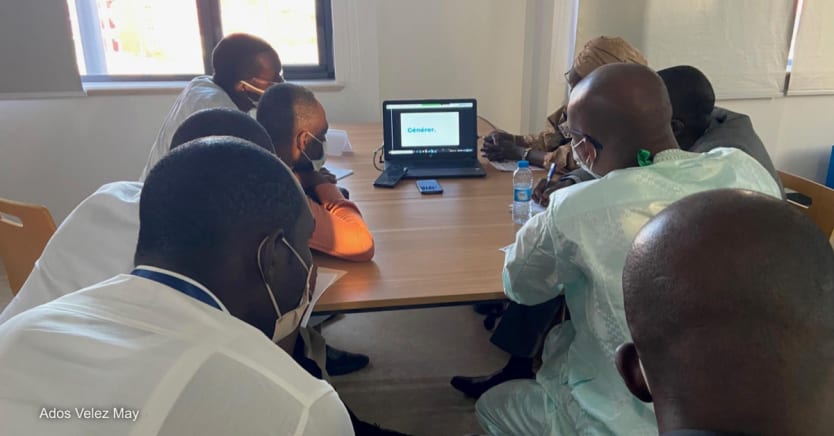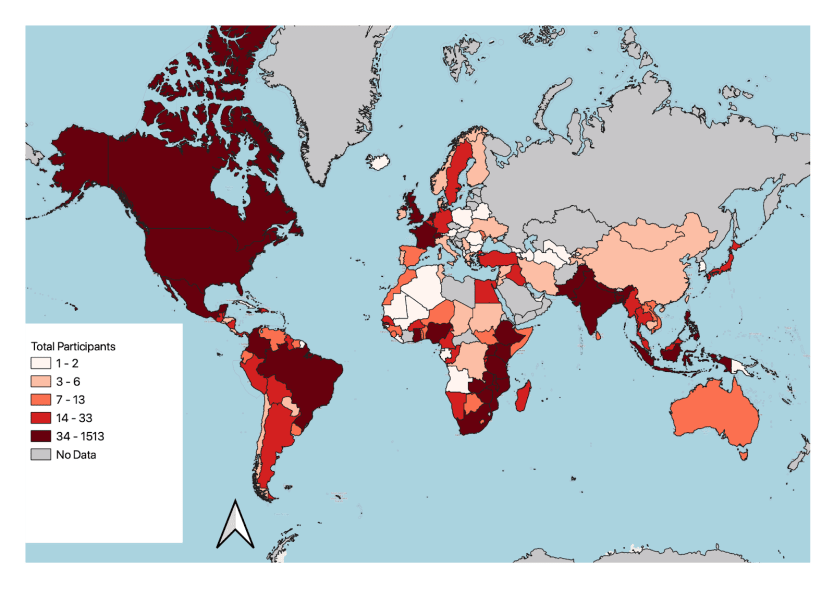
When COVID-19 suddenly pushed the world to pivot towards digital meetings, The IBP Network — a global alliance hosted by the World Health Organization and dedicated to improving family planning and sexual and reproductive health outcomes — was already well-prepared.
Webinars are an effective strategy to quickly share knowledge and disseminate new evidence to a wide audience. And they are a tool that we have been utilizing since 2015, when we first produced a series to disseminate new WHO Guidelines, as well as high-impact practices in family planning.
As IBP continues to provide high-quality, timely, and relevant webinar content to a global audience, we continuously learn … not only about SRH, but also about how to effectively engage our members using digital knowledge sharing tools.
—Since then, there are a lot of lessons we have learned about sharing information in a digital versus an in-person format. For example, we recognize the value of including featured field-based experiences, as well as examples of how organizations have translated guidelines and tools into real-life interventions on the ground. This means that, in a space of 60 or 90 minutes, presenters and participants from a diverse geography engage in a meaningful learning experience that balances global evidence with local know-how.
And at the start of the pandemic, we shared this lesson and others in CLICK, an easy-to-use brief which shares tips for hosting effective and engaging virtual meetings.
We’ve continued to build on this work by conducting an assessment on the impact of our webinars and examining how participants and presenters have used the webinars as a professional knowledge management tool, specifically in the SRH space. We’ve explored whether webinars contribute to building additional skills of SRH leaders and we plan to publish our findings in early 2022. The initial results have revealed the powerful strengths of webinars in engaging the global SRH community.
1. They bring together local SRH stakeholders.
Webinars have a wide reach, making them particularly useful for sharing globally produced tools and guidelines to a large and diverse audience around the world. While global or national in-person events tend to have a limited number of participants due to space or budget constraints, webinars allow for stakeholders to join from an impressive array of countries, including people who would most likely not have been able to attend if the event was held in person.
Our assessment covering a three-year period shows that 50% of webinar attendees reported participating in one or two webinars; 34% reported participating in three to five webinars; and 16% reported participating in six or more webinars. The number of people coming to more than one webinar is a testament to their value.
2. Virtual knowledge sharing equalizes access to SRH evidence and knowledge.
The Pro read:
How can digital public goods support a better future for health?
The COVID-19 pandemic, and West Africa's Ebola crisis before it, have highlighted the need for digital health tools — whether software, services, or content — that can be used across different contexts.
The digital format of webinars also enables immediate dissemination of the latest evidence, ensuring that people can further disseminate it within their countries in a timely manner, regardless of where they are in the world. The dissemination of the same information at the same time means all participants have equal opportunities to ask questions and share comments.
A webinar provides an opportunity for SRH stakeholders to convene and connect — regardless of whether they represent large international institutions or local grassroot movements, and whether they are from high-income settings or LMICs.
In this way, IBP webinars have become an important means of equalizing access to research and knowledge; connecting the global with the local; and bridging the gap between stakeholders with higher resources and those who tend to operate with limited funds, connections, or reach. We select presenters from smaller organizations, who would not otherwise have a place in a global platform. This is an opportunity to feature their organization and make connections that would otherwise take longer to make. Many IBP webinars have been simultaneously translated to improve accessibility of information.

3. They play a role in strengthening capacity and supporting emerging SRH leadership.
A somewhat unexpected benefit of the IBP webinars that we have seen has been strengthening the capacity of current and emerging leaders. Many times, we’ve heard from presenters this was their first time presenting to a global audience or using a webinar platform. The technical aspects of webinars have turned out to be a learning opportunity for many.
Detailed instructions and continuous support from the IBP secretariat to ensure high production quality webinars resulted in many partners gaining the confidence to organize their own webinars using a similar format and, in some cases, replicating the process in other languages.
For field-based presenters, participation in IBP webinars marked a transition from having been recipients of information, to taking on the role of active contributors to global knowledge sharing processes. Panelists have reported an element of confidence boosting. One participant told us during our analysis that the quality of preparations — including advice on specific issues, as well as mindful usage of time, rehearsals, and planning — has helped them to be better organized for events.
As IBP continues to provide high-quality, timely, and relevant webinar content to a global audience, we continuously learn — and share insights — not only about SRH, but also about how to effectively engage our members using digital knowledge sharing tools.
Our experiences of how webinars can play a role in strengthening capacity, as well as equalizing the production and attainment of knowledge, highlight the great potential of knowledge sharing through virtual channels. This is something that has been even more valued during the pandemic, but we know that their value will supersede COVID-19 and be an integral tool into the future. We call on funders and implementing partners to invest in future research to explore links between webinar participation and positive changes in adoption of global SRHR guidelines.










